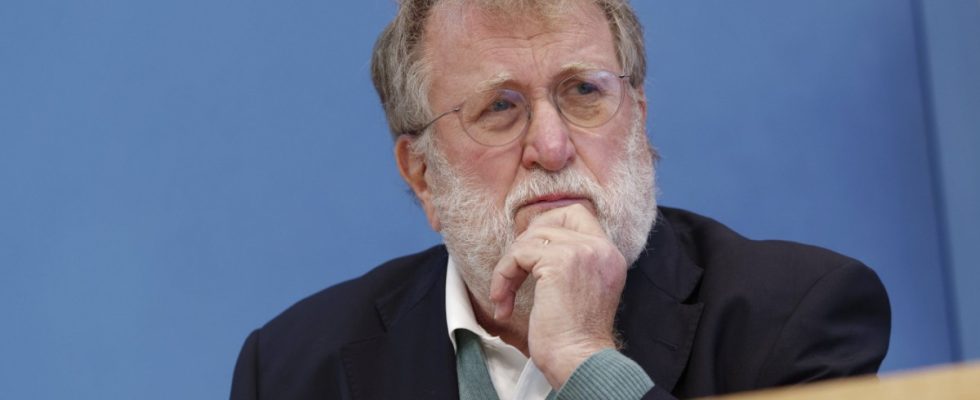The Standing Vaccination Commission is being restructured. The committee that develops the vaccination recommendations for adults and children in Germany will be reappointed on a rotating basis from February 2024 – however, according to the plans of Federal Health Minister Karl Lauterbach (SPD), there will be a sensitive change: members will only be unlimited instead of the current one may serve three terms of office, i.e. a maximum of nine years. For twelve of the 17 members, this means an end to their Stiko work in February 2024. This also applies to the current chairman Thomas Mertens.
But in an interview with the SZ, the virologist stated that he was “basically relaxed”: “I’m looking forward to having more time for other things from February.” He had already announced in September 2022 that he would no longer be available for another term of office, said Mertens. “And that had nothing to do with dissatisfaction or discord. I’m 73 now, now let others do it.”
“We wouldn’t have liked it to be such a big step”
He appreciated the committee work during the pandemic: “It was a very intensive and exciting time,” says Mertens. “Whenever I was insulted at Edeka again, I sometimes asked myself, why am I actually doing this here?” He was sometimes shocked by how much ignorance, stupidity and evil he experienced during this time. But those were always just moments that quickly passed.
Overall, Mertens draws a positive conclusion from the Stiko work: The members of the commission worked together excellently throughout the pandemic. “There was never any friction outside of substantive discussion,” he said. And this despite the fact that there has always been criticism from the public.
The Federal Ministry of Health also emphasizes upon request. “Stiko has achieved top performance, especially during the pandemic. It works at a high level nationally and internationally.” The ministry would like to thank “Professor Mertens in particular, on behalf of the entire Stiko, for his excellent work,” said a spokesman. He assured that nothing will change in the basic principles of the work of this commission. The Stiko will remain linked to the Robert Koch Institute, and the members should continue to work on a voluntary basis and act independently of political influence.
Mertens believes that limiting the term of office is fundamentally correct: “Many international vaccination commissions do it that way, I think it’s okay.” Other Stiko members are critical of the ministry’s plans. The Berlin pediatrician Martin Terhardt says that the previous stability in the staffing has contributed to the Stiko functioning and working together so well during the pandemic. Members have already communicated their “concern that the plans are not conducive to the quality of the commission’s work” to the ministry. The idea that the Stiko should be reorganized has been discussed for some time. However, the strength of the upheaval apparently surprised some members. “In the interests of a smooth continuation of this important and demanding work, we would have liked a better transition and not such a big step,” says Terhardt.
In addition to the limitation of the term of office, a new appointment is also being considered. Apparently, communication experts will be appointed to the Stiko and the public health service will be represented. The number of pediatricians is likely to fall significantly. In principle, it is positive when broader expertise is heard, said current chairman Mertens, but of course it depends on the design. He doesn’t know who his successor will be. Because the ministry only decides on appointments. The chairperson is elected at the constitutive meeting in February by the then appointed members.

